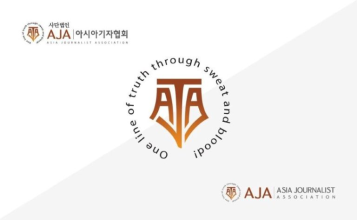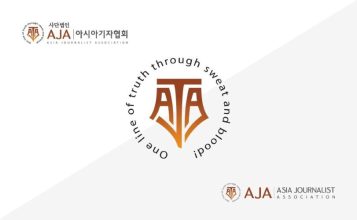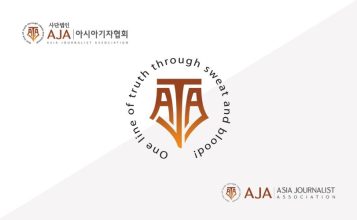AJA Newsbites – June 25, 2025

AJA Newsbites is a curated roundup of major news and developments from across Asia, brought to you by members of Asia Journalist Association (AJA)
Lee Sang-ki, THE AsiaN, Korea
President Lee Jae-myung’s unexpected decision to reappoint former Agriculture Minister Song Mi-ryeong—who previously served under the conservative Yoon Suk-yeol administration—is drawing fierce criticism from both sides of the political aisle.
The ruling coalition has condemned the move as “a betrayal of farmers,” while the opposition has labeled Song “a collaborator,” citing her reversal on the Grain Management Act, a key piece of legislation she once opposed. The controversy comes amid widespread farmer protests and planned tractor rallies in response to the appointment.
Despite the uproar, the presidential office has defended the decision, framing it as a pragmatic choice based on Song’s expertise and experience. President Lee himself has described the reappointment as a gesture of “inclusion and unity,” aiming to transcend partisan lines.
However, critics argue the optics are damaging. Many question the logic of reinstating a minister who once stood against the very policies that underpin the President’s support base.
Chhay Sophal, Cambodia News Online, Cambodia
This week, Cambodia’s Ministry of Health released statistics showing that non-communicable diseases (NCDs) account for more than 64% of all deaths nationwide. According to the Ministry, the leading contributing factors include unhealthy lifestyles, poor diets, tobacco use, excessive alcohol consumption, and lack of physical activity.
In response to the growing burden of NCDs, the Ministry has launched a national awareness campaign focused on prevention and control. The campaign, titled “Exercise for Health: Prevent Risks from Non-Communicable Diseases,” is being implemented in collaboration with the Department of Health Protection, the National Center for Health Promotion, the Phnom Penh Department of Health, various civil society organizations, and representatives of individuals living with NCDs.
The campaign seeks to promote public awareness and community engagement through educational activities and physical exercise. It emphasizes the role of regular physical activity—such as aerobic exercise—in reducing the risk of chronic conditions including diabetes, cardiovascular disease, cancer, and chronic respiratory illnesses.
On Monday afternoon in Phnom Penh, the initiative brought together a wide range of stakeholders—including Ministry officials, health professionals, civil society members, and the general public—for a two-hour community exercise session aimed at highlighting the importance of active lifestyles in combating non-communicable diseases.
Nasir Aijaz, Sindh Courier, Pakistan
In a dramatic policy reversal that has reignited criticism of the government’s handling of the sugar sector, the Sugar Advisory Board—chaired by the Federal Minister for National Food Security—has approved the import of 500,000 tons of sugar. This decision comes just months after the government authorized the export of 750,000 tons of sugar between June 2024 and January 2025.
The about-face follows a sharp rise in domestic sugar prices and growing market instability—trends many attribute to the earlier export approvals. As sugar prices climb, pushing inflation across a range of essential food products, the government is now attempting to stabilize the market with imports. Critics argue this crisis could have been avoided with more prudent policy decisions.
Soaring sugar costs have had a ripple effect, increasing prices across the food sector and placing a growing financial burden on consumers. The timing of the import decision has fueled further scrutiny, with analysts and consumer advocates accusing the government of short-sightedness. They argue that allowing large-scale exports despite clear signs of limited domestic supply has now forced an abrupt and costly course correction, damaging public trust and wasting public funds.
Critics also warn that such inconsistent policymaking is fueling speculation and volatility in the sugar market. “This isn’t market management—it’s mismanagement,” one analyst remarked.
Adding to the controversy, a spokesperson for the Pakistan Sugar Mills Association (PSMA) contested the need for imports altogether. “Ample stocks of sugar are available to meet the country’s demand through November 21, 2025. There is no need to import sugar,” the spokesperson said.
Habib Toumi, THE AsiaN, Bahrain
Bahrain has successfully repatriated 1,215 citizens who had been stranded overseas due to ongoing unrest in the region, the Ministry of Foreign Affairs announced.
As part of the operation, two planes transported 350 citizens from Turkmenistan, following their evacuation from Iran and safe passage into the Central Asian country. Upon arrival at Bahrain International Airport, the returnees were welcomed by a multi-agency team and underwent health screenings while receiving comprehensive logistical support.
In a separate effort, 198 citizens returned to Bahrain by land after the Ministry organized buses to transport them from the Iranian city of Mashhad.
The Ministry also facilitated additional repatriations through land border crossings, working in close coordination with Bahrain’s embassies in Kuwait, Iraq, and Oman.
ⓒ THE AsiaN | All rights reserved
This content is copyrighted by THE AsiaN. If you wish to share it, please do so without modifying the original text and always include the source link. Unauthorized editing or sharing without proper attribution may result in legal consequences.



